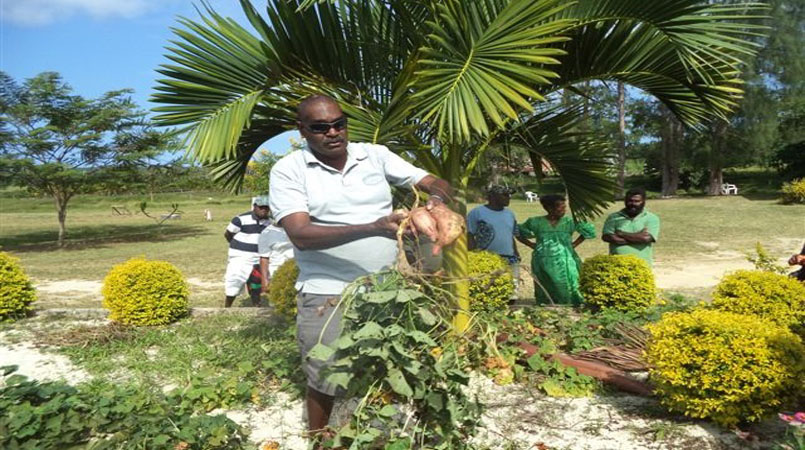
The Vanuatu Agriculture Department (VAD) is currently working on promoting the diversification of organic vegetable farming so that local farmers can meet the vegetable demands of the different ethnic groups living in Vanuatu.
The vegetable that VAD is currently focusing on and promoting for this exercise are eggplants, okras, zucchinis, silver beets and spices. Hopefully this exercise will be the stepping-stone to helping local farmers fine-tune their farming skills and technology for the larger international market.
As it is now, it will be rather difficult for local farmers to use inorganic fertilizers and pesticides as many cannot even afford to buy these, hence this is fully guaranteed that local farmers will always use organic farming techniques and methods in Vanuatu. Furthermore, Vanuatu is not an industrialized country where one would expect farmers to use large amounts of fertilizers and pesticides.
According to Peter Iesul, Farming System Officer at the Department of Agriculture in Port Vila, the most popular organic vegetables grown by local farmers are tomatoes, dwarf beans, lettuce, watermelon and Chinese cabbage. These are the most common vegetables found selling at the local vegetable market.
Other organic vegetables which have not been mentioned by Iesul but which are also popular at the local vegetable market include other types of beans such as Chinese long beans, snake beans and four-winged beans; egg plants, capsicums, sweet corns, cucumbers, pumpkins, watercress and other types of cabbages and greens.
Iesul said the main market is usually crowded with the same vegetables but once famers learn to grow these different varieties then everyone living in Port Vila can buy what they want.
The abundance of food resources and vegetables at the local market two months after Tropical Cyclone Pam is quickly dwindling every day as the country now faces another natural disaster — that of dry season caused by the infamous El Nino. With the reduction in the quantity of food resources at the market, prices are correspondingly increasing and becoming more expensive.
